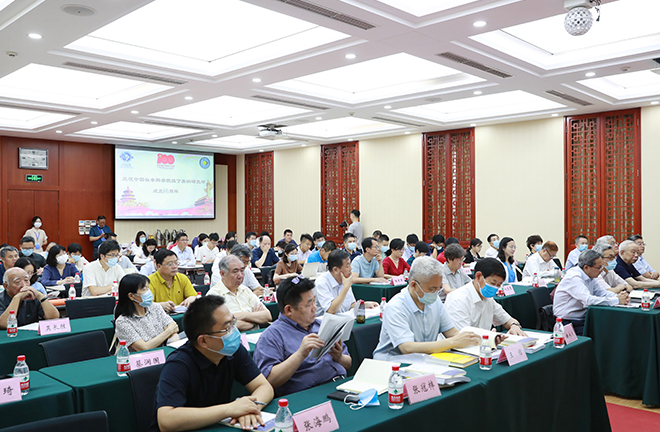Forum explores China-LAC ties

Experts shed light on China-LAC ties amid the pandemic, at a seminar in Beijing on July 4 and 5. Photo: Zhu Gaolei/CSST
Experts exchanged ideas on the new challenges facing Latin American and Caribbean (LAC) countries and China-LAC ties amid the pandemic, at a seminar in Beijing on July 4 and 5.
The seminar, co-hosted by the Chinese Association for Latin American Studies and the Chinese Academy of Social Sciences (CASS), also celebrated the 60th anniversary of the founding of CASS’s Institute of Latin American Studies.
Strengthened cooperation
Under the impact of COVID-19, the international situation is even more unstable and uncertain, and global challenges facing mankind are more severe. Seeking cooperation and development has become a common aspiration for all countries, said CASS President Xie Fuzhan.
“LAC countries play an active role in international affairs and multilateral cooperation. They are our country’s important partners in participating in global governance and promoting the Belt and Road initiative, and are an important force in cooperating to build a community of shared future for mankind,” Xie said.
In recent years, China-LAC economic and trade relations have developed rapidly, showing strong momentum while cooperating on energy resources, agricultural product trade, the digital economy, infrastructure, and the joint fight against the pandemic, Xie noted.
Over the past six decades, the Institute of Latin American Studies at CASS has grown from scratch, from small to large, and has become the country’s largest professional research institute on LAC countries, with a complete range of disciplines, and a team of capable professionals, Xie said. The institute has achieved fruitful results in major theories on Latin American modernization, dependency theory, structuralism, and new structuralism. It has made significant achievements in research on China-LAC relations, as well as industrialization, economic structural transformation, and middle-income traps in LAC countries.
Analysis and prediction
Scholars believe that under the profound influence of the world’s major changes unseen in a century, and the fallout of the sudden COVID-19 pandemic, new challenges are facing China-LAC cooperation in terms of fields, scope, and trends.
Participating scholars focused on new problems and challenges facing LAC countries amid the pandemic from multiple dimensions, such as politics and culture, economy and society, and China-LAC relations, and tried to make comprehensive, objective, and forward-looking judgments on the new trends in the development of China-LAC ties.
Scholars discussed the main challenges faced in economic and social fields in LAC countries amid the pandemic, the pandemic’s impact on social development and social structures, and the main difficulties faced by social governance in LAC countries in the post-pandemic era. They also shed light on how the Latin American economy, which has been in a downturn for a long time, can turn the crisis into an opportunity amid the pandemic, overcome vulnerabilities and governance difficulties long faced by the economy and society, and realize regional economic growth again. In addition, experience and lessons from the development of LAC countries were summarized, in order to provide useful reference for other developing countries.
In the field of politics and culture, participating scholars analyzed the history and reality of LAC countries, in terms of the pandemic’s impact on their politics and political ecology, as well as new changes in their political landscapes, new development of the current left-wing, and current political reforms. They tried to grasp basic overarching political trends, and analyzed deep-seated underlying structures for the political development and political ecology of LAC countries.
In the field of international relations, attendees discussed China-LAC relations, the construction of the China-LAC community of shared future, cooperation on facility connectivity, as well as global governance and China-LAC relations. They also compared public policies in China and LAC countries in the post-pandemic era, analyzed cultural exchanges and mutual learning experiences between China and LAC countries, and discussed new opportunities and challenges in front of them in the joint construction of the Belt and Road amid the pandemic.
Edited by JIANG HONG
